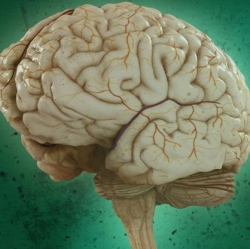
The connection between diabetes and Alzheimer’s disease has been studied for years, with some scientists suggesting the two conditions are different stages of the same disease. Rresearch has now discovered that a drug initially developed for diabetes has "significantly reversed memory loss" in early animal trials.
The new research led by Professor Christian Holscher of Lancaster University looked at the neuro-protective effects of a novel diabetes drug called a triple receptor agonist. This drug was initially designed to treat type 2 diabetes by activating GLP-1, GIP and Glucagon growth factor receptors in the brain.
The study used transgenic mice engineered to express the same mutated genes that cause Alzheimer’s in humans. After exposure to the triple receptor agonist the mice displayed significant improvements in a maze-based memory test and reductions in chronic inflammation, oxidative stress and amyloid plaques in the brain.
Past research has already confirmed that single agonist drugs developed for diabetes display neuroprotective effects in animal models, but this is the first time that a triple receptor drug has been studied for these effects. Professor Holscher sees clear promise in these results, and while more research needs to be done, this does point to a potential new treatment for those suffering from Alzheimer’s disease.
"Here we show that a novel triple receptor drug shows promise as a potential treatment for Alzheimer’s but further dose-response tests and direct comparisons with other drugs have to be conducted in order to evaluate if this new drugs is superior to previous ones," says Holscher.
Perhaps an even more compelling outcome of this study is that it adds to a growing body of evidence that links diabetes to Alzheimer’s. Of course, not everyone who develops type 2 diabetes will go on to develop Alzheimer’s, but there is a possible causal link between impaired insulin signaling and increased amyloid plaques in the brain.
